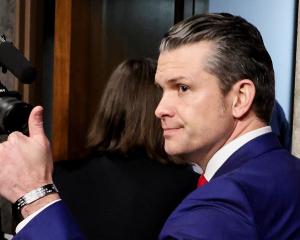Some assurance can be taken by the public from the latest survey of the efforts by dairy farmers to comply with both the law and the 2003 Dairying and Clean Streams Accord, but the results also show there is still a great deal to be done.
Indeed, the level of national non-compliance with effluent discharge consents is still a disgrace, although the situation has improved in Otago - and not before time.
Regional councils have taken a much more forceful attitude towards compliance in recent years, although the charge by critics that such action ought to have been taken much earlier is entirely justified by the state Otago's rivers and streams were allowed to reach.
The Otago Regional Council has issued infringement fines and taken more serious breaches to prosecution, resulting in quite large fines for the worst offenders.
Public anger against dairy farmers who continue to flout the requirements - along with the damage being done to New Zealand's carefully cultivated, if misleading, "clean, green" publicity - has grown to the stage where now politicians at cabinet level are taking an interest.
Claims by farmers' organisations that "most [dairy] farmers" care about the impact their businesses have on the environment simply do not stand up to scrutiny if the survey statistics for the 2008-09 season are to be believed.
On a national scale, only 60% of dairy farms are complying with resource consents and regional plans in the discharge of their dairy effluent, although the figures for Otago and Southland farmers, at 75% and 69% respectively, are above average.
The national figure actually represents a decrease in compliance.
It is good to see improvements in the exclusion of dairy cattle access to waterways on farms and at crossing points, but the results are far from satisfactory in compliance with the need to adequately protect important wetlands.
Fonterra's estimate that around 10% of its suppliers still seriously breach the regulations suggests a section of recidivist farmers exists who should not be in the industry.
There is some hope that, in this regard, effective action will at last become a reality.
Fonterra's penalty scheme, called the effluent improvement system, will come fully into effect after the end of the current season.
It will mean that once farmers are facing regional council enforcement action, they would also face financial penalties from the company, which hopes by this measure to reduce noncompliance by half by August next year.
Fonterra also continues to have staff provide advice to farmers it identifies as struggling to meet compliance rules, but the combination of voluntary measures and fines may still not be enough of an incentive for the significant minority of unwilling farmers.
Obviously, too, some regional councils enforce the rules strictly, and some fail to do so by large measure.
The Government has threatened to strengthen the regulations to force farmers to comply if its preference for voluntary industry-led environmental management fails to work, but there is no need for more regulation: what is required is consistent enforcement across the country.
It is admitted regional councils claim they are faced with difficult choices in this regard, arguing, in effect, that a stream on the plains of Canterbury cannot be considered the same as a stream on the slopes of Mt Taranaki in terms of environmental damage.
But this is hardly a credible argument when all that is required is enforceable uniform water quality standards.
More monitoring of the persistent offenders - and more neighbourhood involvement - along with dairy company sanctions, are required.
Fonterra has said it will spend up to $3 million and provide more specialist staff to check every farm supplier every year to force those not complying to meet standards.
That is the level of effort the public, and the complying majority of dairy farmers, expect.
The significant harm the industry has already caused to the environment while earning great wealth - $9.9 billion in exports for the year to March 2008, for example - suggests there is plenty of money in the industry to fund 100% compliance, and to begin the clean-up the public has every right to expect.












